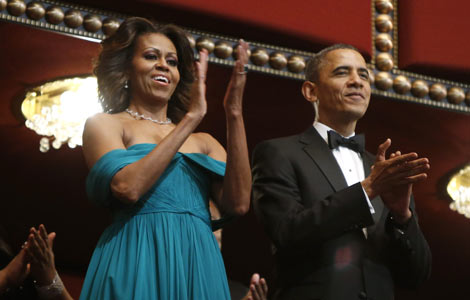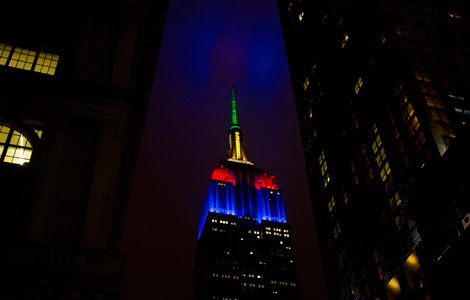

WASHINGTON, Dec 9 (Reuters) - The US Senate gave final approval on Monday to a bill to renew a ban against firearms that can pass undetected through metal detectors, but rejected calls to update the law in response to the advent of plastic guns made with 3-D printers.
On a voice vote, the Democratic-led Senate passed the bill, which would extend for 10 years the Undetectable Firearms Act of 1988.
The Republican-led House of Representatives approved the bill last week and, like the Senate, refused to pass tougher provisions opposed by the powerful gun industry.
President Barack Obama signed the legislation into law before the ban was to expire at midnight.
Along with many fellow Democrats, Obama would prefer an updated version of the ban to close what are seen as loopholes created by new technologies, such as 3-D printing, an aide said.
Senate Democrats led by Charles Schumer of New York failed on Monday to win quick approval of a measure to require all firearms to include at least 3.7 ounces of non-removable metal essential for its operation.
Without the provision, backers argue, the metal could be taken off the gun, permitting a functional weapon to pass undetected through metal detectors and X-ray machines and carried into supposedly secure areas.
Senate Republicans refused to provide the unanimous consent needed to approve the change on a legislative fast-track.
Democrats then joined Republicans in voting to extend ban, but promised to keep pushing for tougher provisions. A key Republican said he was ready to listen.
Senator Charles Grassley of Iowa, top Republican on the Judiciary Committee, said changes may be needed in the ban, but complained that Schumer sought a vote before many lawmakers understood his provision and what it sought to fix.
"Congress needs to gain an understanding of printed gun manufacturing technology and its relation to permanent metal parts," Grassley said, adding that hearings are needed.
Schumer said he was encouraged by Grassley's comments, telling reporters, "I'm hopeful that we can come to a compromise."
Schumer, who has often tangled with the gun industry on his efforts to toughen gun laws, said the industry has been relatively low key on this issue, and added that he hopes it stays that way.
The ban was first signed into law in 1988 by Republican President Ronald Reagan shortly after the introduction of the Austrian-made Glock firearm. Made largely of synthetic material, the Glock created a fear of undetectable weapons.
That increased with the proliferation of the underground production of plastic guns with 3-D printers.
Democratic Senator Chris Murphy of Connecticut called for an update of the law, saying, "This isn't science fiction anymore .... Someone can make a gun in their basement."
The gun industry favored extension of the ban, but opposed expanding it, saying the proposed modernization of the law would violate the right to bear arms and unnecessarily interfere with the legal production of firearms.
Earlier this year, the gun industry used its political clout to help defeat Obama's bid to toughen gun laws in wake of a massacre at an elementary school in Newtown, Connecticut.
The Center for American Progress, a liberal advocacy group, called it "crucial" to extend the ban, but denounced the measure passed by Congress as "deeply flawed."
"It does nothing to address new technologies like 3-D printing that could allow terrorists and other dangerous people to easily make fully functional, undetectable guns," said Winnie Stachelberg, an executive vice president at the center.







